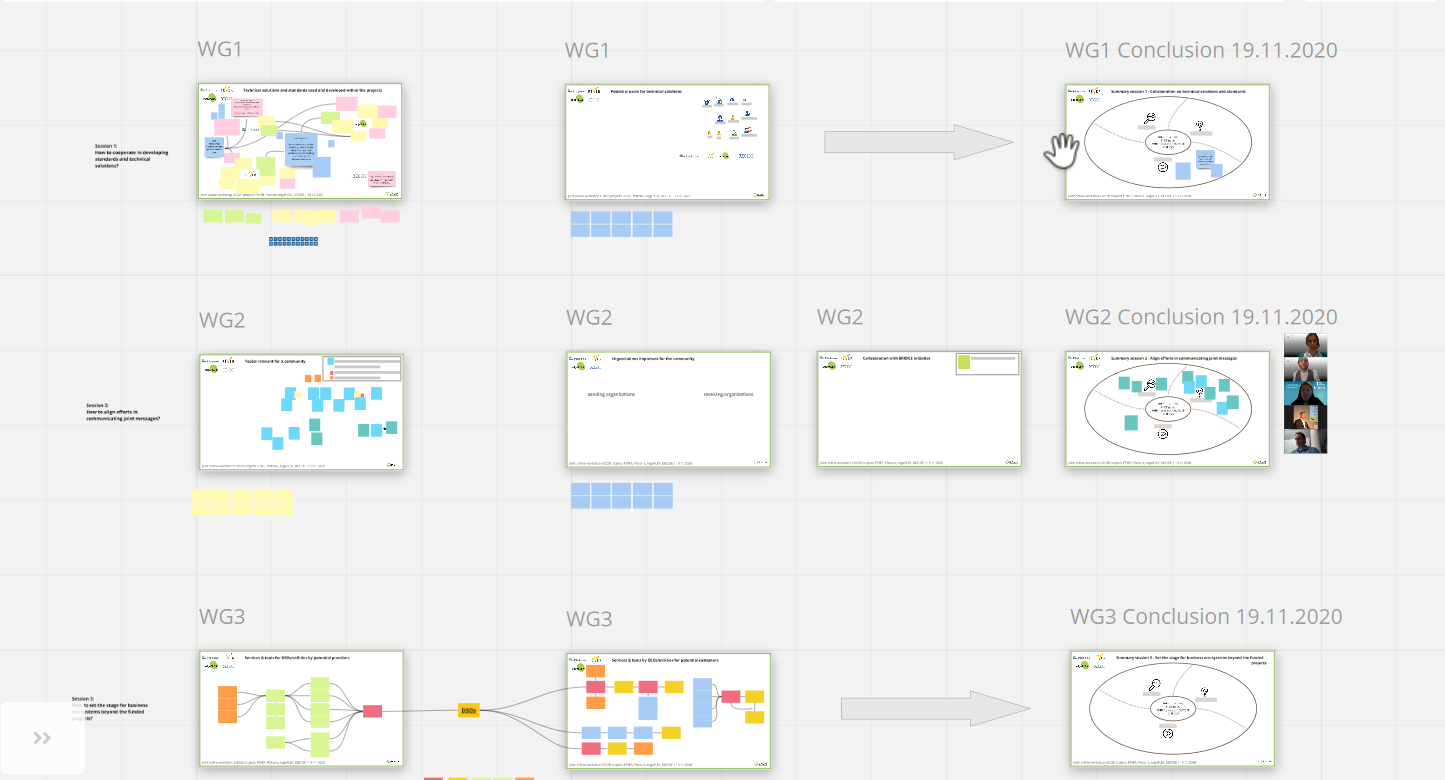
Joint H2020 events
BRIDGE “Stakeholder Characterisation” Survey
The edgeFLEX project is funded through Horizon2020 and is therefore not initially a BRIDGE project. However, as it thematically fits very well with BRIDGE projects and activities and the exchange with these projects was considered very valuable, edgeFLEX proposed to be included in the initiative. In February 2022, edgeFLEX was integrated into BRIDGE and has been involved in the working groups (WG) since then.
In the WG “Citizen and Customer Engagement”, edgeFLEX project partner B.A.U.M. is leading the topic group “Stakeholder Characterization”. The objective of the group is to characterise all stakeholders in the energy system across the EU. A specific goal is to capture the characteristics of the individual persons behind the multiple roles and organisations, e.g., the different employees of a DSO, to create personas as prototypes for certain stakeholders. The availability of personas for stakeholders that play a role in the digitisation of the energy system will make engagement activities and implementation processes in future projects more successful as well as help future development of tools being more user-oriented. For this purpose, a comprehensive, large-scale survey has been developed, that will be conducted over a course of several months to be able to gather enough responses for a holistic approach. The goal of the survey is to create an openly accessible European database to share the insights of the gathered engagement experiences.
Preliminary results:
After approximately three months of conducting the online survey, 128 responses were observed while 61 were completed and therefore valid. The valid responses serve as the basis of the following analysis. In general, it took respondents an average of 19 minutes to complete the survey (± 9 min) while each respondent characterized 5 stakeholder types on average. Given the amount of stakeholders per respondent, we can see that most respondents had various interactions with stakeholders in the flexible energy system which they were willing to share. For example, the following question was divided into 2 parts where respondents had to first choose the current tasks of stakeholders and then choose the future tasks in a second step. Out of 29 available answers the 12 most significant answers remained to be analyzed. Let us have a deeper look into the current and future tasks of the DSO technicians. Currently it is understood that DSO technicians are engaging with “Electrical grid operation” (73%), “Electric power distribution” (55%), “Technical support” (55%) and “Tariffing” (27%). For the future, the DSO technician is assigned to more categories and therefore more tasks. “Electrical grid operation” grew to 82% and “Electric power distribution” grew to 73%. The other two categories (Electricity generation and Tariffing) remained the same, whereas two new were added. These are “ICT provider” (27%) and “Energy flexibility provision” (27%).

Conclusions:
The preliminary results show a few insights which need to be observed and possibly evaluated further through more responses and follow-up interviews. We want to point out the following:
- The general willingness to share among respondents is quite high (5 stakeholders per survey were characterized).
- We saw indicators for DSOs (technicians) taking more tasks in the future energy system while energy community members should take less tasks. This very issue has to be overserved and analyzed further because it seems contradictory to most of the findings in current literature.
Horizon 2020 joint online event 19th of November 20
Kick-off for a closer collaboration
To maximise synergies between EU Horizon 2020 funded projects, members of the consortia of edgeFLEX, DECIDE, FEVER and Platone as well as external experts gathered virtually on 19 November to discuss the potential of local flexibilities in relation to energy communities. After reviewing similarities and differences as well as collaboration opportunities, the participants agreed on continuing to work together.
On EU and national level, the discussion on advancing the European energy system often centres around technical solutions for harvesting flexibilities and establishing a new organisational and business model that builds on a better involvement of citizens, e.g. in energy communities. Few projects tackle these issues together - the involved projects do. In order to sound out the possibilities of a closer cooperation, the main objective of the workshop was to elaborate the similarities of the four projects and to find out the differences aiming to learn from each other.
In the first part of the event, the projects as well as the concept of energy communities and approaches to flexibility management in other EU and ERA-Net SES funded projects were presented. In the second part, the partners of the different consortia discussed in three parallel breakout sessions using virtual visualisation how to cooperate in developing standards and technical solutions, how to align efforts in communicating joint messages and how to set the stage for business eco-systems beyond the funded projects.
The workshop was organized by B.A.U.M. Consult who is seeking to establish a long-term collaboration between the four projects and a broader community on flexibilities. The participants agreed on follow-up workshops to further discuss the different topics.
